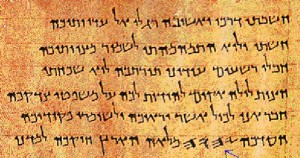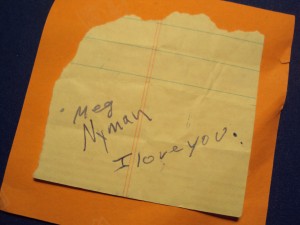Marriage was one of God’s more creative ideas. Two idealistic people come together with high hopes for heaven on earth, then quickly realize the old adage about opposites attracting is true after all.
Of course putting opposites together was clever. God hoped the improbability of getting along would cause couples to seek his help, after which they’d have a good chance to make their marriage work, even thrive.
An old proverb that speaks truth is, “Friendship is the appreciation of similarities, and love is the appreciation of differences.” Every marriage needs its friendship component, but the glue that holds it together through tough times is the loving appreciation of differences.
Unfortunately it’s more likely we’ll try to change our partner than appreciate the differences. We think, “Why can’t everybody just be like me?”
Nate and I got married while he was still a law student. He was a coffee-holic who sipped from a bottomless mug as he studied, and I loved tea. In a restaurant, he’d watch as the waiter brought me a cup, saucer, tiny teapot of hot water, teabag and lemon wedge. “That looks like a lot of work,” he’d say. “Why don’t you just drink coffee?”
“Or you could drink tea!” I’d counter.
I wasn’t any good at making coffee and rarely made it for him. (Mr. Coffee hadn’t been invented.) He thought it was silly to buy a variety of teabags on our tiny budget. We just couldn’t see eye to eye.
Then one day Nate surprised me. “I’ve decided to try tea. As a matter of fact, I’m going to drink it for a whole year and try to like it.” I figured he had finally seen the value of thinking just like me.
Nate kindly followed through, getting acquainted with Earl Grey, Mint Medley and Lemon Zest. But at the end of that year, the coffee bean still had his heart. Eventually it won mine, too, although not because Nate asked me to forsake tea for a year. Actually he never insisted I think like him about anything. Looking back, I see that as true love, the appreciation of our differences.
Scripture tells us to look out for the interests of others, and to do unto others as we’d like them to do unto us. We’re also told to love our neighbors as we love ourselves. These things are to be done without first trying to change the other person. We’re to do them to imitate God, and when we do, he promises two good things: life will go better for us (including marriage), and he’ll reward our efforts.
I wish I could say I did as well as Nate did at appreciating marriage differences. He taught by example, and I guess it’s taken me until now to really figure out the lesson.
“If you do good to those who are good to you, what credit is that to you? Be merciful, just as your Father is merciful.” (Luke 6:33,36)







